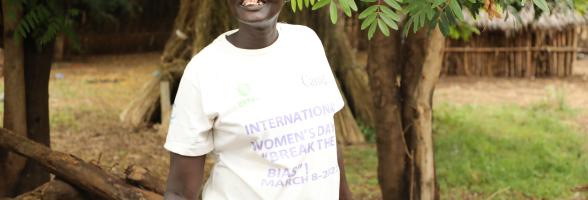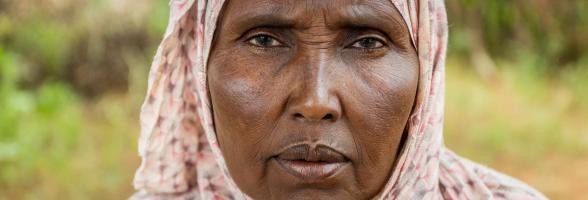In response to the outcomes of the 2nd Global Refugee Forum (GRF), Oxfam in Africa Director Fati N’Zi-Hassane said:
The achievements of the GRF 2023 should be celebrated, especially its emphasis on meaningful refugee and host-community participation, but there is still a long way to go to tangibly change the endgame for millions of refugees around the world.
Oxfam welcomes the pledges made to support refugees and those who are shouldering the biggest responsibility of welcoming refugees, and to shift power to communities at the frontline of response especially refugee leaders. But the chasm between commitments made and the political realities on the ground remains enormous.
Most rich nations, as well as “the missing middle” - continue to fail to step up to their responsibilities and welcome more refugees. Instead, they are adopting cruel policies that punish rather than protect those fleeing conflict and persecution and promote deeply xenophobic, divisive and dehumanizing narratives in their own backyards. The promises made this week must not be used to cloak these troubling political realities.
What refugees need over the next four years is for world leaders to provide more welcoming policies, putting refugees in the driving seat of decisions that affect them and giving them the tools necessary to thrive. Refugees themselves are speaking loudly and strongly about what is needed, we must listen, and we must act.
- Oxfam mission has started at the heels of the WWII to help people fleeing the war. Since then, Oxfam has championed the rights of people fleeing conflict and persecution for safety and protection.
- Currently 18% of Oxfam’s funding goes to local and national organisations.
- Oxfam has pledged in two areas at the GRF 2023: 1) We are co-leading a pledge on ‘Meaningful Refugee Participation’, alongside the Global Refugee-led Network. 2) We are pledging to advance localisation in refugee and statelessness responses and, through this pledge, committing to strengthening collaborative partnerships with organizations led by refugees and stateless persons, investing in and supporting innovative funding mechanisms for RLOs, and helping to address the barriers that can hinder meaningful and equitable participation. In this way, we hope to work towards Oxfam’s vision of a humanitarian system that is more collaborative, inclusive, agile, and diverse than it has been to date – and more accountable to those it aims to support.
- Oxfam has strong partnerships with a number of refugee-led organisations across the world– most notably the Global Refugee Network – and who are at the forefront of response and know best refugee needs. We have long campaigned for these organisations to be at the heart of policies pertaining refugees. For example, Oxfam has funded ten organisations led by refugees in Uganda (West Nile Region), as well as RLOs in Turkiye. We are particularly supporting RLOs led by women so that they are able to play a bigger role in peacebuilding and supporting their own communities.

